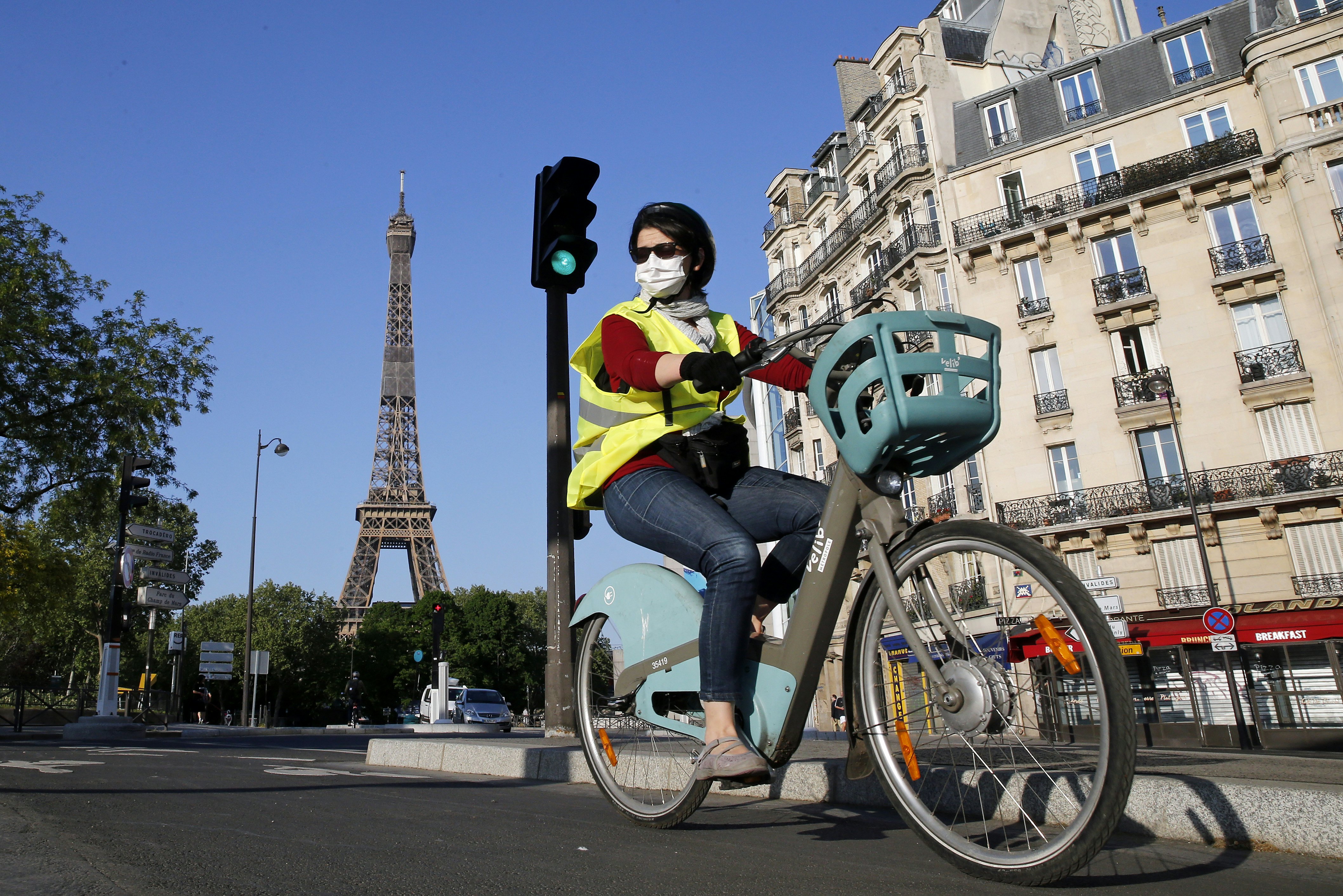The cities aiming to become bike and pedestrian-friendly after lockdown

May 4, 2020 • 2 min read

Paris is becoming more bike-friendly after lockdown (c) Shutterstock
European cities including Paris, Berlin and Milan are working to become more bike and pedestrian-friendly after lockdown.
Paris is leading the way by putting down 65km of cycle lanes throughout the city from 11 May when France enters phase two of lockdown. It's part of an existing scheme known as Plan Velo, introduced by Mayor Anne Hidalgo before the coronavirus crisis, to make the French capital more bike-friendly by 2024. But with social distancing set to be the norm for the foreseeable and cycling now the preferred mode of transport for many, the plan was accelerated. Work on improving and widening cycle lanes is already underway.

Under the €20m ($27m) cyclists are encouraged to switch from private cars to bikes with all sorts of incentives. For example, they can join a "bicycle repair boost" programme which treats them to €50 worth of bike repairs through registered mechanics in the city. Training programmes are also on the cards. And employers can reclaim up to €400 of travel costs a year for staff who cycle to work.
"While 60% of trips made in France are less than 5 km, the coming weeks represent an opportunity for many French people, already cyclists or not, to choose biking," minister Elisabeth Borne told Le Monde.
Paris is also banning cars from Rue de Rivoli, one of the city's most famous thoroughfares, reserving it for bikes, public transport and emergency vehicles.

Berlin is also taking similar strides by implementing "pop-up" bicycle lanes to help people maintain social distancing while out on the streets. Removable red-and-white tape and temporary signs have been laid out to mark the widened lanes and can be removed when lockdown restrictions are lifted. While in Milan, officials are pedalling forward with the Strade Aperte (Open Streets) plan to reallocate 35km (22 miles) of the city's streets to cyclists and pedestrians.
The lack of cars on our streets since lockdowns came into effect has had a positive effect on the environment and public health. According to the Centre for Research on Energy and Clean Air, improvement in air quality over the past month has led to 11,000 fewer deaths from pollution in Europe. It has also influenced how we behave with many streets in urban settings reclaimed by walkers, runners and cyclists taking advantage of safer and quieter streets.




